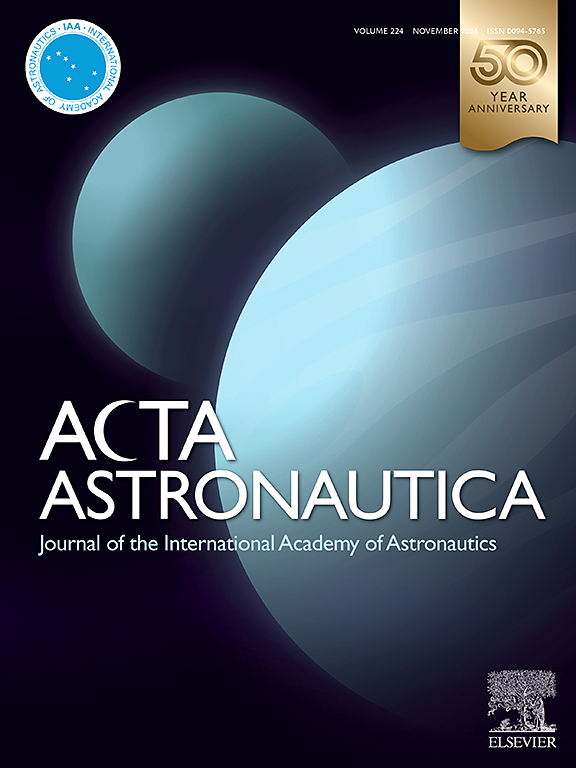Balancing commercialization and sustainability in outer space: Addressing new challenges
IF 3.1
2区 物理与天体物理
Q1 ENGINEERING, AEROSPACE
引用次数: 0
Abstract
One notable aspect of NewSpace is the growing influence of private non-state actors. Nation-states have also implemented policies that facilitate the involvement of private non-state players in space activities. The lack of progress in international space law since the Moon Agreement of 1979 highlights the need to reconsider and update the existing legal system. Therefore, it is necessary to create a different framework based on the concept of commercial reality. The article emphasises the impact of NewSpace on the technological and commercial aspects of the outer space industry. An analysis is conducted on the crucial requirement for regulatory reform in the field of outer space law and policy, which arises from these advancements in the future. The persistent obstacle in addressing the commercial development of NewSpace is the lack of clarity surrounding property rights in outer space, particularly concerning the ownership and utilisation of space resources. This article examines the issue presented by the national space laws, which have conflicting and inconsistent views on property rights in outer space. The article also aims to investigate the practicality of establishing an international framework for space cooperation. The importance of the New Age institutional mechanism for international collaboration and the agenda for the proposed mechanism are emphasized. The proposed institutional framework aims to achieve a balance between commercialization and profit-driven market pressures, considering their potential negative effects on the sustainable usage of outer space. In conclusion, the article discusses India's appropriate course of action in response to the emerging problems in the field of space exploration.
求助全文
约1分钟内获得全文
求助全文
来源期刊

Acta Astronautica
工程技术-工程:宇航
CiteScore
7.20
自引率
22.90%
发文量
599
审稿时长
53 days
期刊介绍:
Acta Astronautica is sponsored by the International Academy of Astronautics. Content is based on original contributions in all fields of basic, engineering, life and social space sciences and of space technology related to:
The peaceful scientific exploration of space,
Its exploitation for human welfare and progress,
Conception, design, development and operation of space-borne and Earth-based systems,
In addition to regular issues, the journal publishes selected proceedings of the annual International Astronautical Congress (IAC), transactions of the IAA and special issues on topics of current interest, such as microgravity, space station technology, geostationary orbits, and space economics. Other subject areas include satellite technology, space transportation and communications, space energy, power and propulsion, astrodynamics, extraterrestrial intelligence and Earth observations.
 求助内容:
求助内容: 应助结果提醒方式:
应助结果提醒方式:


